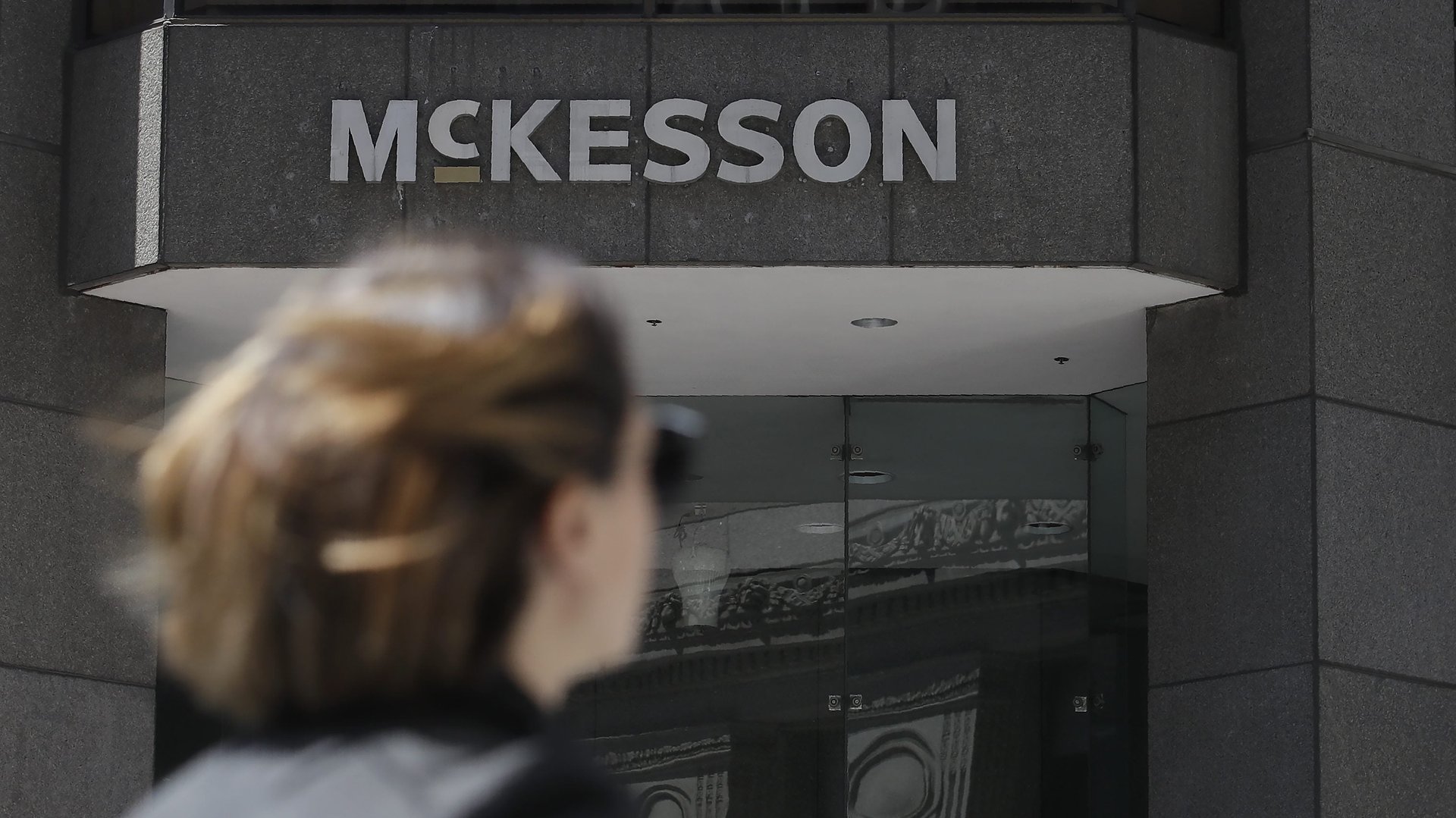Four major players in the US opioid crisis reached a tentative deal in Ohio
Four major drug companies reached a settlement in Ohio today, narrowly avoiding a trial that was expected to set the tone for opioid lawsuits across the US.


Four major drug companies reached a settlement in Ohio today, narrowly avoiding a trial that was expected to set the tone for opioid lawsuits across the US.
Attorneys for the plaintiffs announced the settlement just hours before a trial pitting opioid distributors and manufacturers against the Ohio counties of Cuyahoga and Summit was set to begin in a US District Court.
While the exact terms of the settlement are not available, Teva, AmerisourceBergen, Cardinal Health, and McKesson agreed to pay $260 million to compensate communities hit by the opioid epidemic, according to the Wall Street Journal (paywall). The fifth defendant in the case, Walgreens Boots Alliance, didn’t reach a deal and the trial against it has been delayed.
“The proposed settlement will make significant progress to abate the epidemic by providing resources for and applying funds directly to necessary opioid-recovery programs,” said a committee representing the plaintiffs in a statement.
In a joint statement, the companies said they “strongly dispute the allegations” made by Cuyahoga and Summit counties, but argued that “settling the bellwether trial is an important stepping stone to achieving a global resolution and delivering meaningful relief.”
The judge presiding over this case, Dan Polster, has encouraged all parties in the opioid trials to reach a consolidated settlement. The Wall Street Journal previously reported (paywall) that a coalition of state attorneys general has drafted a deal for McKesson, AmerisourceBergen, and Cardinal Health to pay $18 billion over 18 years to settle a variety of lawsuits. This deal could be worth up to $50 billion in total , the Journal reports, including $4 billion from Johnson & Johnson and services worth up to $29 billion from Teva. However, some plaintiffs remain opposed to this deal.
More than 2,000 lawsuits brought by cities, counties, tribes, hospitals, and virtually every US state allege that pharmaceutical companies, manufacturers, and distributors promoted the widespread use of opioid painkillers while withholding crucial information about the risks of addiction.
In a recent video investigation, How to Sell Drugs, Quartz showed that Mundipharma, the international arm of Purdue Pharma, the Sackler family-owned makers of OxyContin, continues to market opioids for the treatment of chronic pain as more effective and less addictive than research has shown them to be. Purdue filed for bankruptcy last month as part of a settlement deal that has yet to be finalized but is reported to include $3 billion from the Sacklers for costs related to opioid addiction.